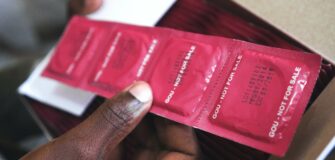From 1 July 2022, women who need to get a cervical screening test, or Pap Smears, will be able to choose to self-collect a sample themselves.
The self-collect option is a game changer in cervical screening – and Australia is one of the first countries in the world to offer it as a choice for all screening participants.
For many women and people with a cervix, particularly those who have experienced sexual violence or abuse, having a regular ‘pap smear’ from a GP can be extremely traumatic, and many women instead opt not to get this test done, which exposes them to a higher risk of developing cervical cancer.
Being able to do the test yourself is also expected to increase the rates of cervical cancer screening for women from culturally and linguistically diverse backgrounds, who may have experienced cultural barriers and taboos around traditional ‘pap smears’. It will also make a world of difference for the gender diverse community who also face access barriers.
Self-collection will be available through GP clinics, women’s health clinics, Aboriginal health centres and other healthcare providers, through the National Cervical Screening Program, which encourages a simple five-yearly test (changed from every two years in 2017) to check for human papillomavirus (HPV) before any cancerous cells develop. HPV is a common infection that causes almost all cervical cancers.
Today’s change to the National Cervical Screening Program means that anyone aged 25-74 with a cervix, who has ever been sexually active will be able to choose to have a Cervical Screening Test either by:
- taking their own sample from their vagina, using a simple swab, or
- having a health care provider collect the sample using a speculum.
Both test options are free under Medicare – so if your healthcare provider bulk bills for consultations, the whole thing is free. They are accessed through a healthcare provider and are accurate and safe ways to collect a sample for a Cervical Screening Test.
Self-collection is also available as an option for follow-up HPV testing after an intermediate risk result and cervical screening during pregnancy.
The Australian Government is working with the Australian Centre for the Prevention of Cervical Cancer to develop a National Cervical Cancer Elimination Strategy.
This will be a coordinated effort throughout the health system to overcome cultural and structural barriers to cervical cancer prevention programs and treatment, particularly for First Nations peoples and other under-screened populations.
The Government is also supporting Australia’s largest clinical trial, the Compass Trial, which will produce world-first evidence on the interactions between HPV vaccination and HPV-based screening. The trial will inform improvements to the National Cervical Screening Program to ensure participants continue to receive the right care.
Original content from The Hon Ged Kearney MP media page. Note: Content has been edited for style and length.
Nina Alvarez is a Content Producer for Healthcare Channel. Her interests include writing, particularly about the healthcare sector and the many ways it can improve to further benefit people from all walks of life.






















